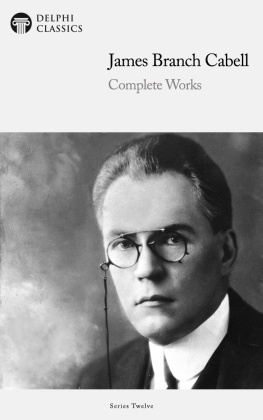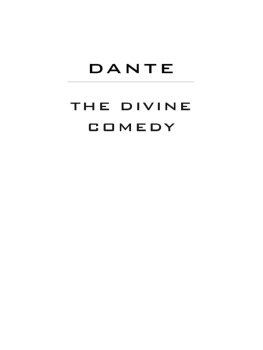James Cabell - Jurgen. A Comedy of Justice
Here you can read online James Cabell - Jurgen. A Comedy of Justice full text of the book (entire story) in english for free. Download pdf and epub, get meaning, cover and reviews about this ebook. genre: Romance novel. Description of the work, (preface) as well as reviews are available. Best literature library LitArk.com created for fans of good reading and offers a wide selection of genres:
Romance novel
Science fiction
Adventure
Detective
Science
History
Home and family
Prose
Art
Politics
Computer
Non-fiction
Religion
Business
Children
Humor
Choose a favorite category and find really read worthwhile books. Enjoy immersion in the world of imagination, feel the emotions of the characters or learn something new for yourself, make an fascinating discovery.

- Book:Jurgen. A Comedy of Justice
- Author:
- Genre:
- Rating:5 / 5
- Favourites:Add to favourites
- Your mark:
- 100
- 1
- 2
- 3
- 4
- 5
Jurgen. A Comedy of Justice: summary, description and annotation
We offer to read an annotation, description, summary or preface (depends on what the author of the book "Jurgen. A Comedy of Justice" wrote himself). If you haven't found the necessary information about the book — write in the comments, we will try to find it.
Jurgen. A Comedy of Justice — read online for free the complete book (whole text) full work
Below is the text of the book, divided by pages. System saving the place of the last page read, allows you to conveniently read the book "Jurgen. A Comedy of Justice" online for free, without having to search again every time where you left off. Put a bookmark, and you can go to the page where you finished reading at any time.
Font size:
Interval:
Bookmark:
JURGEN
A Comedy of Justice
By
JAMES BRANCH CABELL
"Of JURGEN eke they maken mencioun,
That of an old wyf gat his youthe agoon,
And gat himselfe a shirte as bright as fyre
Wherein to jape, yet gat not his desire
In any countrie ne condicioun."
TO
BURTON RASCOE
Before each tarradiddle,
Uncowed by sciolists,
Robuster persons twiddle
Tremendously big fists.
"Our gods are good," they tell us;
"Nor will our gods defer
Remission of rude fellows'
Ability to err."
So this, your JURGEN, travels
Content to compromise
Ordainments none unravels
Explicitly and sighs.
A Foreword: Which Asserts Nothing.
"Nescio quid cert est: et Hylax in limine latrat."
In Continental periodicals not more than a dozen articles in all would seem to have given accounts or partial translations of the Jurgen legends. No thorough investigation of this epos can be said to have appeared in print, anywhere, prior to the publication, in 1913, of the monumental Synopses of Aryan Mythology by Angelo de Ruiz. It is unnecessary to observe that in this exhaustive digest Professor de Ruiz has given (VII, p. 415 et sequentia) a summary of the greater part of these legends as contained in the collections of Verville and Blg; and has discussed at length and with much learning the esoteric meaning of these folk-stories and their bearing upon questions to which the "solar theory" of myth explanation has given rise. To his volumes, and to the pages of Mr. Lewistam's Key to the Popular Tales of Poictesme, must be referred all those who may elect to think of Jurgen as the resplendent, journeying and procreative sun.
Equally in reading hereinafter will the judicious waive all allegorical interpretation, if merely because the suggestions hitherto advanced are inconveniently various. Thus Verville finds the Nessus shirt a symbol of retribution, where Blg, with rather wide divergence, would have it represent the dangerous gift of genius. Then it may be remembered that Dr. Codman says, without any hesitancy, of Mother Sereda: "This Mother Middle is the world generally (an obvious anagram of Erda es), and this Sereda rules not merely the middle of the working-days but the midst of everything. She is the factor of middleness, of mediocrity, of an avoidance of extremes, of the eternal compromise begotten by use and wont. She is the Mrs. Grundy of the Lshy; she is Comstockery: and her shadow is common-sense." Yet Codman speaks with certainly no more authority than Prote, when the latter, in his Origins of Fable, declares this epos is "a parable of man's vain journeying in search of that rationality and justice which his nature craves, and discovers nowhere in the universe: and the shirt is an emblem of this instinctive craving, as the shadow symbolizes conscience. Sereda typifies a surrender to life as it is, a giving up of man's rebellious self-centredness and selfishness: the anagram being se dare."
Thus do interpretations throng and clash, and neatly equal the commentators in number. Yet possibly each one of these unriddlings, with no doubt a host of others, is conceivable: so that wisdom will dwell upon none of them very seriously.
With the origin and the occult meaning of the folklore of Poictesme this book at least is in no wise concerned: its unambitious aim has been merely to familiarize English readers with the Jurgen epos for the tale's sake. And this tale of old years is one which, by rare fortune, can be given to English readers almost unabridged, in view of the singular delicacy and pure-mindedness of the Jurgen mythos: in all, not more than a half-dozen deletions have seemed expedient (and have been duly indicated) in order to remove such sparse and unimportant outcroppings of medival frankness as might conceivably offend the squeamish.
Since this volume is presented simply as a story to be read for pastime, neither morality nor symbolism is hereinafter educed, and no "parallels" and "authorities" are quoted. Even the gaps are left unbridged by guesswork: whereas the historic and mythological problems perhaps involved are relinquished to those really thoroughgoing scholars whom erudition qualifies to deal with such topics, and tedium does not deter.
In such terms, and thus far, ran the Foreword to the first issues of this book, whose later fortunes have made necessary the lengthening of the Foreword with a postscript. The needed additionthis much at least chiming with good luckis brief. It is just that fragment which some scholars, since the first appearance of this volume, have assertedupon what perfect frankness must describe as not indisputable groundsto be a portion of the thirty-second chapter of the complete form of La Haulte Histoire de Jurgen.
And in reply to what these scholars assert, discretion says nothing. For this fragment was, of course, unknown when the High History was first put into English, and there in consequence appears, here, little to be won either by endorsing or denying its claims to authenticity. Rather, does discretion prompt the appending, without any gloss or scholia, of this fragment, which deals with
The Judging of Jurgen.
Now a court was held by the Philistines to decide whether or no King Jurgen should be relegated to limbo. And when the judges were prepared for judging, there came into the court a great tumblebug, rolling in front of him his loved and properly housed young ones. With the creature came pages, in black and white, bearing a sword, a staff and a lance.
This insect looked at Jurgen, and its pincers rose erect in horror. The bug cried to the three judges, "Now, by St. Anthony! this Jurgen must forthwith be relegated to limbo, for he is offensive and lewd and lascivious and indecent."
"And how can that be?" says Jurgen.
"You are offensive," the bug replied, "because this page has a sword which I choose to say is not a sword. You are lewd because that page has a lance which I prefer to think is not a lance. You are lascivious because yonder page has a staff which I elect to declare is not a staff. And finally, you are indecent for reasons of which a description would be objectionable to me, and which therefore I must decline to reveal to anybody."
"Well, that sounds logical," says Jurgen, "but still, at the same time, it would be no worse for an admixture of common-sense. For you gentlemen can see for yourselves, by considering these pages fairly and as a whole, that these pages bear a sword and a lance and a staff, and nothing else whatever; and you will deduce, I hope, that all the lewdness is in the insectival mind of him who itches to be calling these things by other names."
The judges said nothing as yet. But they that guarded Jurgen, and all the other Philistines, stood to this side and to that side with their eyes shut tight, and all these said: "We decline to look at the pages fairly and as a whole, because to look might seem to imply a doubt of what the tumblebug has decreed. Besides, as long as the tumblebug has reasons which he declines to reveal, his reasons stay unanswerable, and you are plainly a prurient rascal who are making trouble for yourself."
"To the contrary," says Jurgen, "I am a poet, and I make literature."
"But in Philistia to make literature and to make trouble for yourself are synonyms," the tumblebug explained. "I know, for already we of Philistia have been pestered by three of these makers of literature. Yes, there was Edgar, whom I starved and hunted until I was tired of it: then I chased him up a back alley one night, and knocked out those annoying brains of his. And there was Walt, whom I chivvied and battered from place to place, and made a paralytic of him: and him, too, I labelled offensive and lewd and lascivious and indecent. Then later there was Mark, whom I frightened into disguising himself in a clown's suit, so that nobody might suspect him to be a maker of literature: indeed, I frightened him so that he hid away the greater part of what he had made until after he was dead, and I could not get at him. That was a disgusting trick to play on me, I consider. Still, these are the only three detected makers of literature that have ever infested Philistia, thanks be to goodness and my vigilance, but for both of which we might have been no more free from makers of literature than are the other countries."
Font size:
Interval:
Bookmark:
Similar books «Jurgen. A Comedy of Justice»
Look at similar books to Jurgen. A Comedy of Justice. We have selected literature similar in name and meaning in the hope of providing readers with more options to find new, interesting, not yet read works.
Discussion, reviews of the book Jurgen. A Comedy of Justice and just readers' own opinions. Leave your comments, write what you think about the work, its meaning or the main characters. Specify what exactly you liked and what you didn't like, and why you think so.


